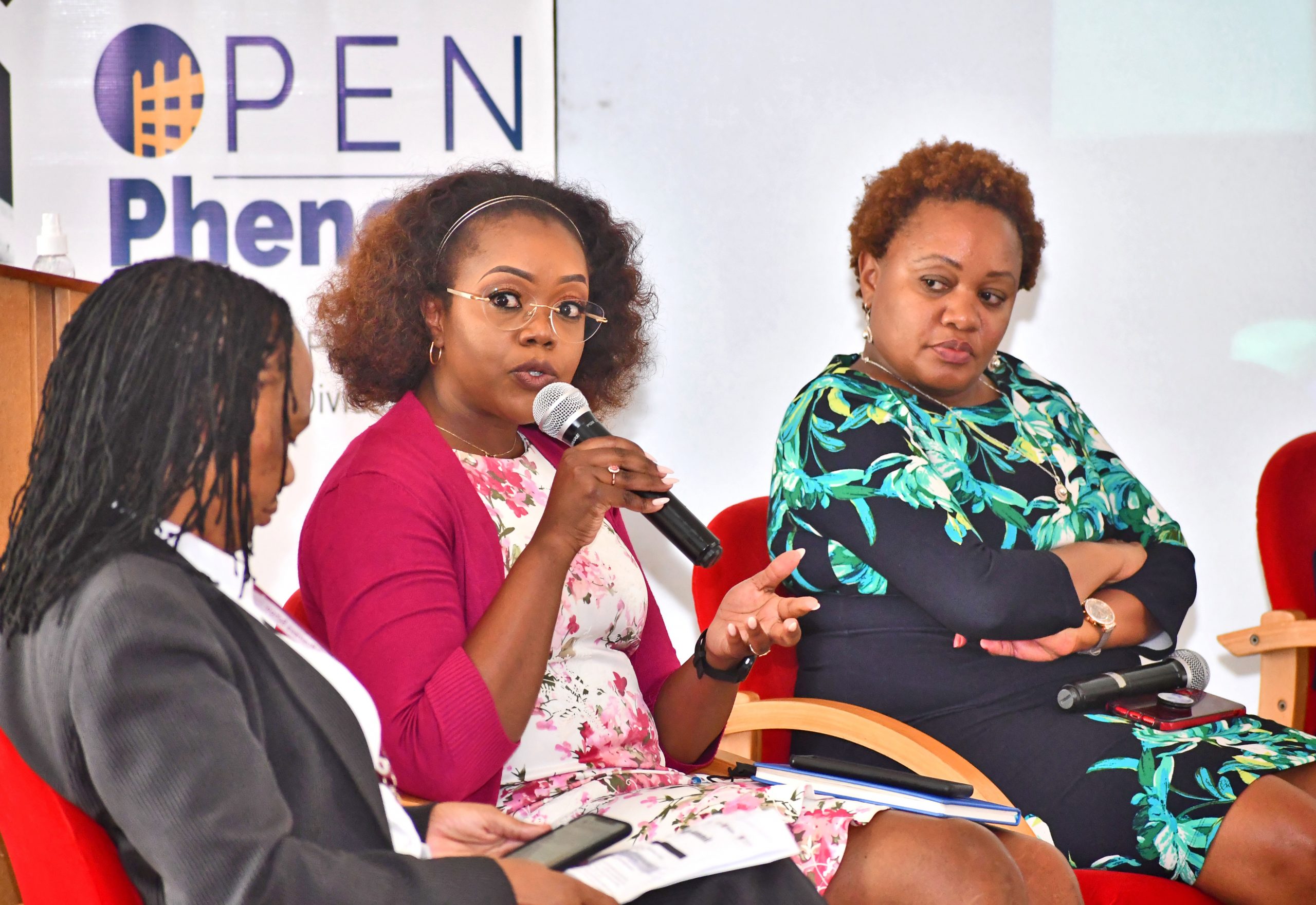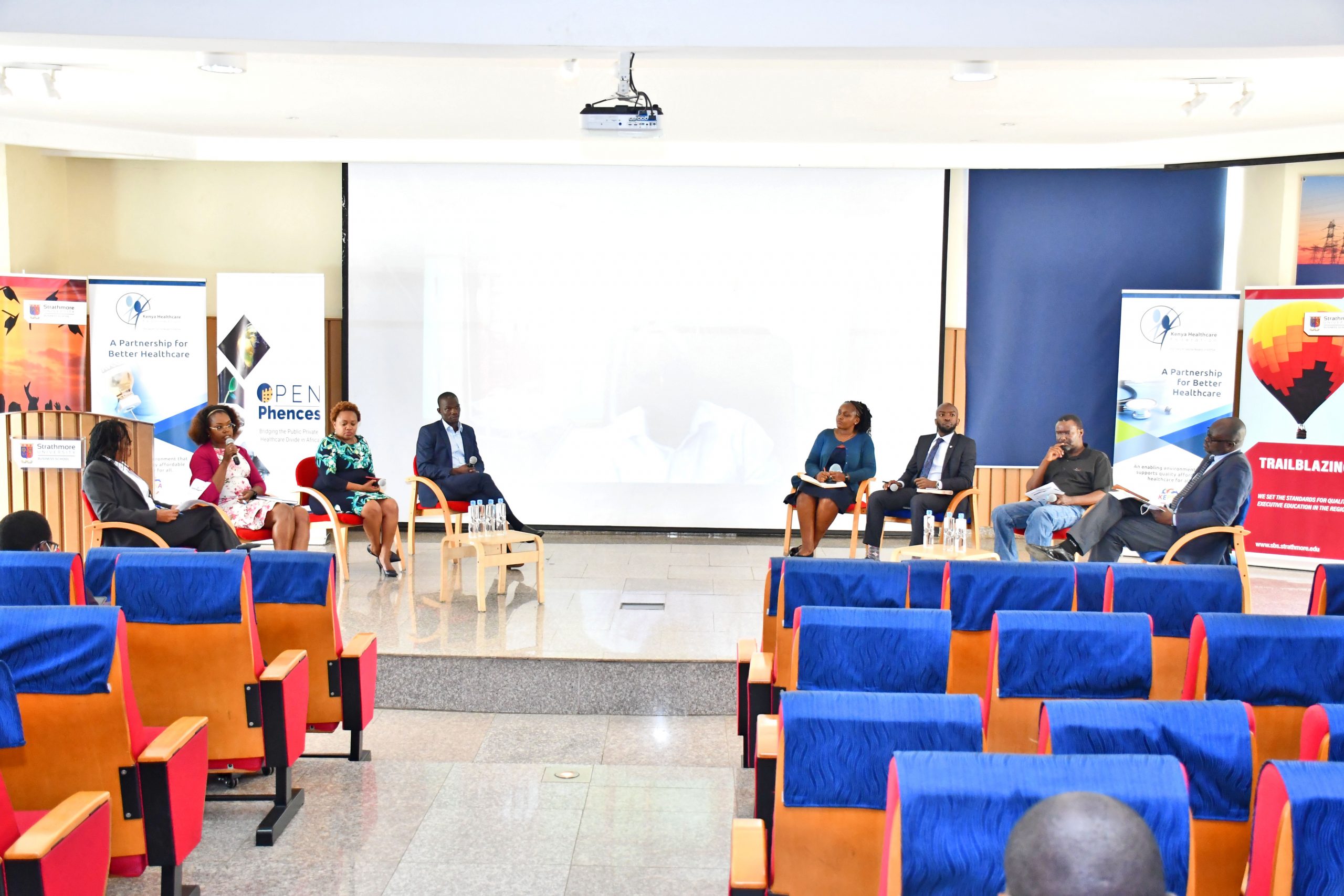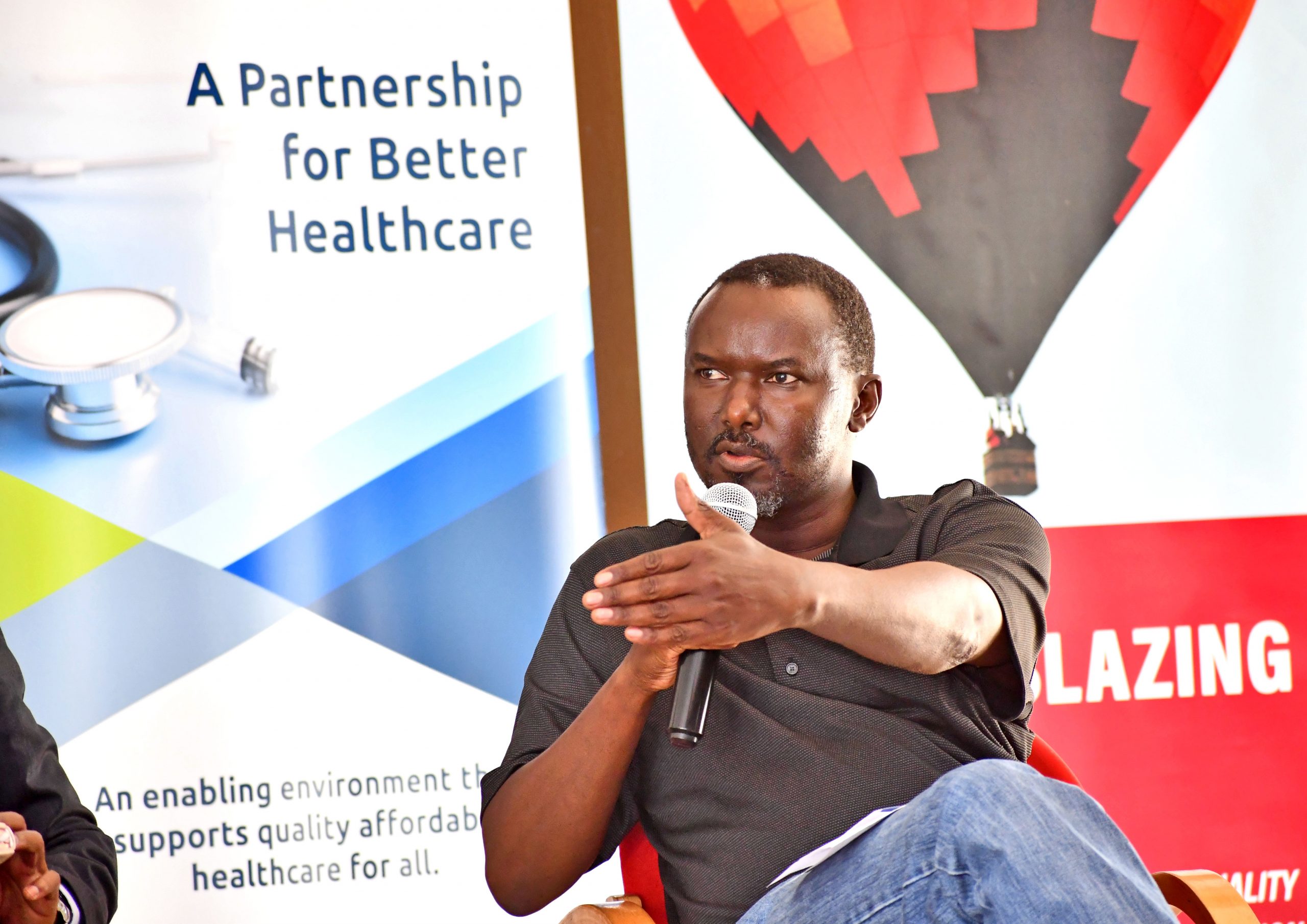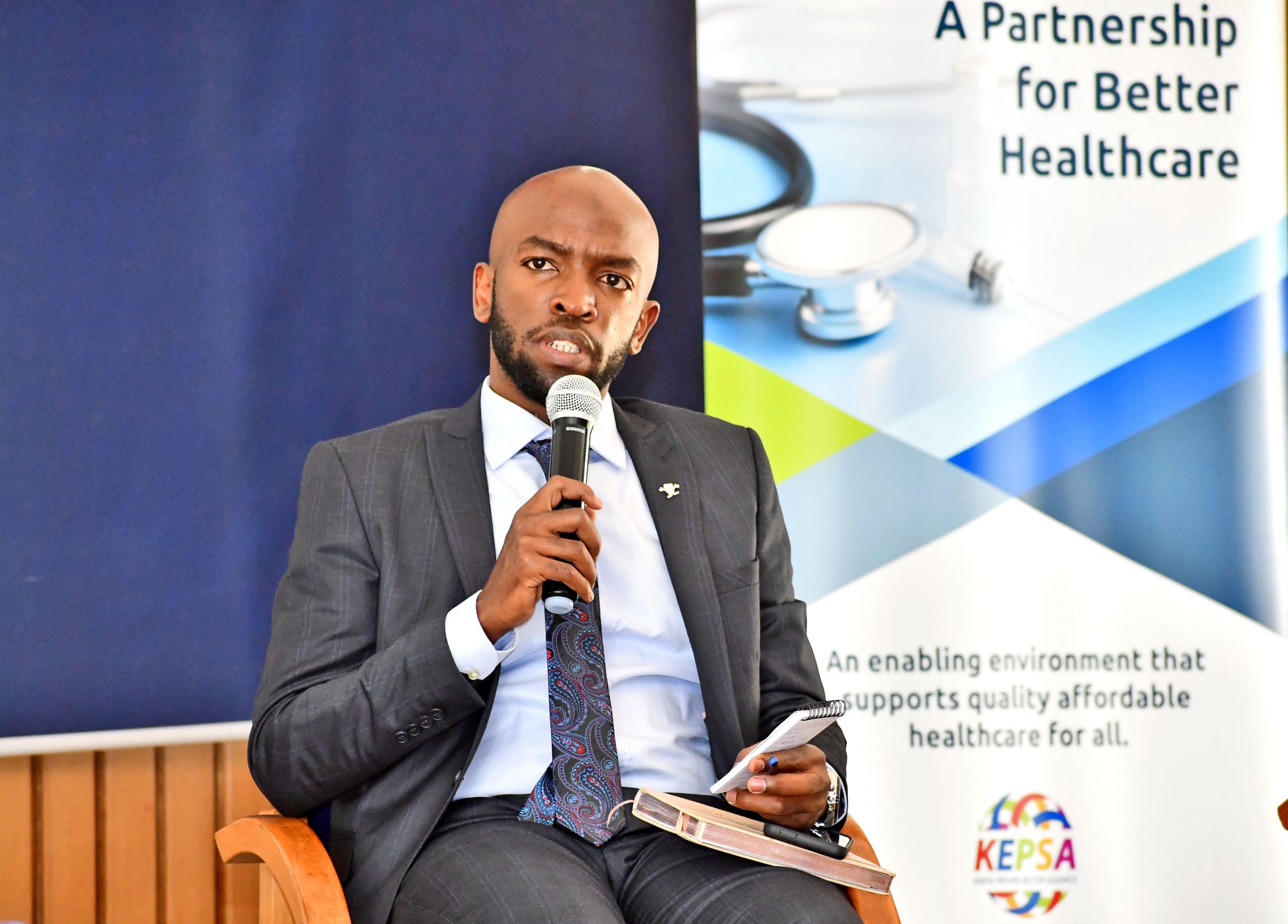The call for reformation of health sectors across the world has intensified following the recent crisis that revealed that underinvestment in this critical sector had repercussions that reverberated across all sectors and effectively plunged the global economy into a severe contraction.
Protectionist-leaning policies across high-income countries, such as vaccine nationalism and trade (export) restriction served as a wake-up call to sub-Saharan African countries following the COVID-19 pandemic. The crisis exposed the fickle nature of development assistance in times of crisis. While Africa is home to nearly 17 percent of the world’s population, only three percent of the continent’s population is vaccinated compared to over 70 percent in Europe. Africa produces only one percent of its vaccine requirements, and imports over 70 percent of medicines consumed, yet the continent carries the highest burden of disease globally. It is unsurprising therefore that Africa suffered some of the worst consequences of the pandemic’s direct effects such as vaccine shortages, reduced trade/importation of essential commodities and reduced development assistance for health.
Leveraging experience and insights from government, academia, and industry, the 2021 Annual Health Summit hosted by Strathmore University Business School (SBS) created a platform for stakeholders to engage in an open dialogue to determine what is needed to shift the continent’s focus from aid dependence to self-sustainability by supporting and encouraging local innovators and entrepreneurs to find solutions that have the potential for rapid scaling to reach all segments of the population. The sponsors of the event were the Kenya Healthcare Federation and Open Phences which are dedicated to bridging the public-private healthcare divide.
Africa’s growing markets present massive opportunities. The continent has a rapidly growing population, growing literacy levels, high mobile and internet penetration, and rapidly expanding economies (Africa has the second fastest GDP growth). Unfortunately, policy, structural and market challenges hamper the maximization of opportunities, especially among local entrepreneurs. The Summit which focused on ‘Innovation and Sustainable Solutions for Health in Africa: Resilience Beyond the Pandemic,’ initiated the conversation to explore the next frontier for healthcare in Africa.
In his opening remarks, Dr. George Njenga, Executive Dean of SBS asserted that successfully innovating and improving the healthcare sector in the country requires the close partnership of those who govern and develop policies and those who are governed that apply those policies. He went to reflect on the current state of the healthcare system in the country and noted that although positive strides have been made to address the issues there are still glaring problems in the sector such as lack of skills and capacity building, improper storage of medicines, improper use of equipment, lack of proper governance in hospitals, misuse of donor funds and unreliable statistics due to silos that undermine effective decision making. However, Dr. Njenga observed that the country has the brightest minds to solve these challenging issues, “We have built a beautiful community of healthcare scientists, healthcare managers and healthcare communities of practice and we look forward to setting up one of the best biomedical research centres in Africa and probably the world, with the support of mathematicians, healthcare workers, healthcare managers, accountants, financial managers, health economists and policymakers.’’
Setting the stage for the discussions, Dr. Frank Wafula, a Senior Lecturer at the Institute of Healthcare Management at SBS said, “We are standing on the cusp of a very pivotal moment in history, a lot of effort has gone into improving the policy and regulatory environment that allows private enterprises to thrive and healthcare and non-healthcare businesses to thrive in the country and we are seeing an unprecedented pipeline of innovations which are transforming health services as we know them.’’ He mentioned that researchers are increasingly being asked to come out of their shells and participate in the conversations on how healthcare can go to the next level. Historically scientists have existed in a cocoon of their own, isolated from policy makers and private investors, but this is rapidly reversing as forums such as this Summit look at bridging the gaps to get the right partnerships in place to maximize the benefits of the improved climate and research breakthroughs.
The Chief Guest, Dr. Simon Kibias, Head, Directorate of Health Standards, Quality Assurance and Regulation, Ministry of Health (MOH) representing the Chief Administrative Secretary of MOH, Dr. Rashid Aman, emphasized the importance of placing quality at the centre of service delivery and stated that the challenge posed to both the private sector and government is to come together is to ensure quality is at the center of healthcare service delivery to ensure that locally manufactured products produced from the technologies of our researchers are safe for both internal and international use and consumption. Indeed, Dr. Aman’s remarks read by Dr. Kibias affirmed that pharmaceuticals and health products and technology (HPT) are critical to the economic and social development of Kenya and that the current policy direction envisaged that investment in healthcare systems will be scaled up to improve healthcare outcomes. Functional healthcare supply chains, respecting intellectual property rights and the ability of the country to manufacture its vaccines, access to healthcare for all citizens and walking towards sustainability by helping to scale up local entrepreneurs are also focal points of the current strategy.
Public-private partnerships in healthcare are not a new phenomenon however the current draft of the PPP act is skewed towards capital-intensive infrastructure projects which serve as a disadvantage for the healthcare sector. Additionally, the ecosystem is very fragmented which impedes the ability of both private and public sector players to define what is important from a community perspective and how they can work together towards realizing the need to move away from silos to an ecosystem-wide approach to partnerships.
Mr. Stephen Macharia, Chief Economist and Head of PPPs, MOH, outlined the key market incentives for private sector investment in healthcare which ranged from tax incentives, stable pro-investment government policies, business-friendly reforms, large pools of skilled enterprising workers in Kenya, the strategic location of the country as a financial communication and transport hub, improved physical infrastructure and low cost of internet connectivity and leveraging the strength of the tourism industry to encourage medical tourism. He also mentioned some key challenges that included low uptake of PPP projects both at national and county levels, more interest in infrastructure-based projects, uncoordinated PPP projects in counties, lack of information sharing and the lack of PPP focal people in most counties. However, the establishment of the PPP Unit in the Ministry of Health (MOH) will act as a bridge between the MOH and National treasury to help mobilize resources and forge new partnerships with the private sector, philanthropists and civil society partners.
Dr. Bahaa Eddine Sarroukh, Senior Advisor on Innovation & Technology to SDG Partnership Platform Kenya and Innovation Lead at the Philips Foundation– SDG Partnership Platform spoke about how the SDG Partnership Platform is working with partners to support the establishment of effective and sustainable partnerships in healthcare. The SDG partnership platform was co-created with Kenyan NGOs, civil society, academia and government actors. It aims to bring intellectual and financial capital together to translate ideas into impact and move from piloting projects to scaling them effectively and also addressed building toolkits to build capacity at a county and regional level. He mentioned that structuring effective partnerships will require ongoing continuous dialogue.
During the panel discussion on the healthcare collaboration ecosystem, Dr Leah Mwai, Technical Advisor for Science Technology and Innovation, UK Foreign, Commonwealth & Development Office (FCDO), EA, articulated the difficulties local scientists face when they want to patent their innovations and understanding the legal and policy frameworks that enable them to do so as well as accessing capital and being supported by the government when they are negotiating with big corporations and helping them to develop their businesses by equipping them with the right skills.
Furthermore, Dr. Wangari Ng’ang’a from the Presidential Policy and Strategy Unit observed that basic products such as tongue depressors can be locally manufactured and invited the private sector and entrepreneurs to look into overlooked opportunities such as these. She also noted that a shift in perception of locally manufactured products is needed to ensure effective uptake of these products. Hospitals and other institutions need to trust local manufacturing standards.
In summary, the lively discussions during the Summit highlighted a few key points of focus for healthcare transformation:
- Building a connected ecosystem and adopting a whole country approach in advancing healthcare. Shifting from an aid-dependent to a self-sustainable healthcare economic model
- Collaborating ethically in both the private and public sector
- Collaborating instead of competing and structuring partnerships to allow partners to absorb the risks they are best placed to handle
- Focusing on projects at a granular level and holding forums at the county level to bring together stakeholders to co-create locally relevant solutions
Elaborating on the Kenyan private sector working effectively with the government, Dr Gakombe Kanyenje, Kenya Healthcare Federation Chair, said, “It is a good time for the health sector to get organized and work together as healthcare moves from a footnote to a level four agenda item.’’ He stressed the importance of private interests to be aligned with public interests to facilitate effective collaborations.
The COVID-19 pandemic revealed that no country in the world has an ideal healthcare system and that digital health systems provide huge opportunities that can boost the sector. The effects of the pandemic were far-reaching and required a whole country/continent/global approach. It is therefore clear that the time is ripe for Africa to invest time, energy, intellect, and resources towards establishing ecosystems that support local entrepreneurs and businesses to deliver sustainable and social, gender and culture-sensitive solutions.
Article by Shailja Sharma, Executive Fellow and Coach
Share This Story, Choose Your Platform!
Your journey to business excellence starts here. Subscribe today and be at the forefront of innovation and leadership.













